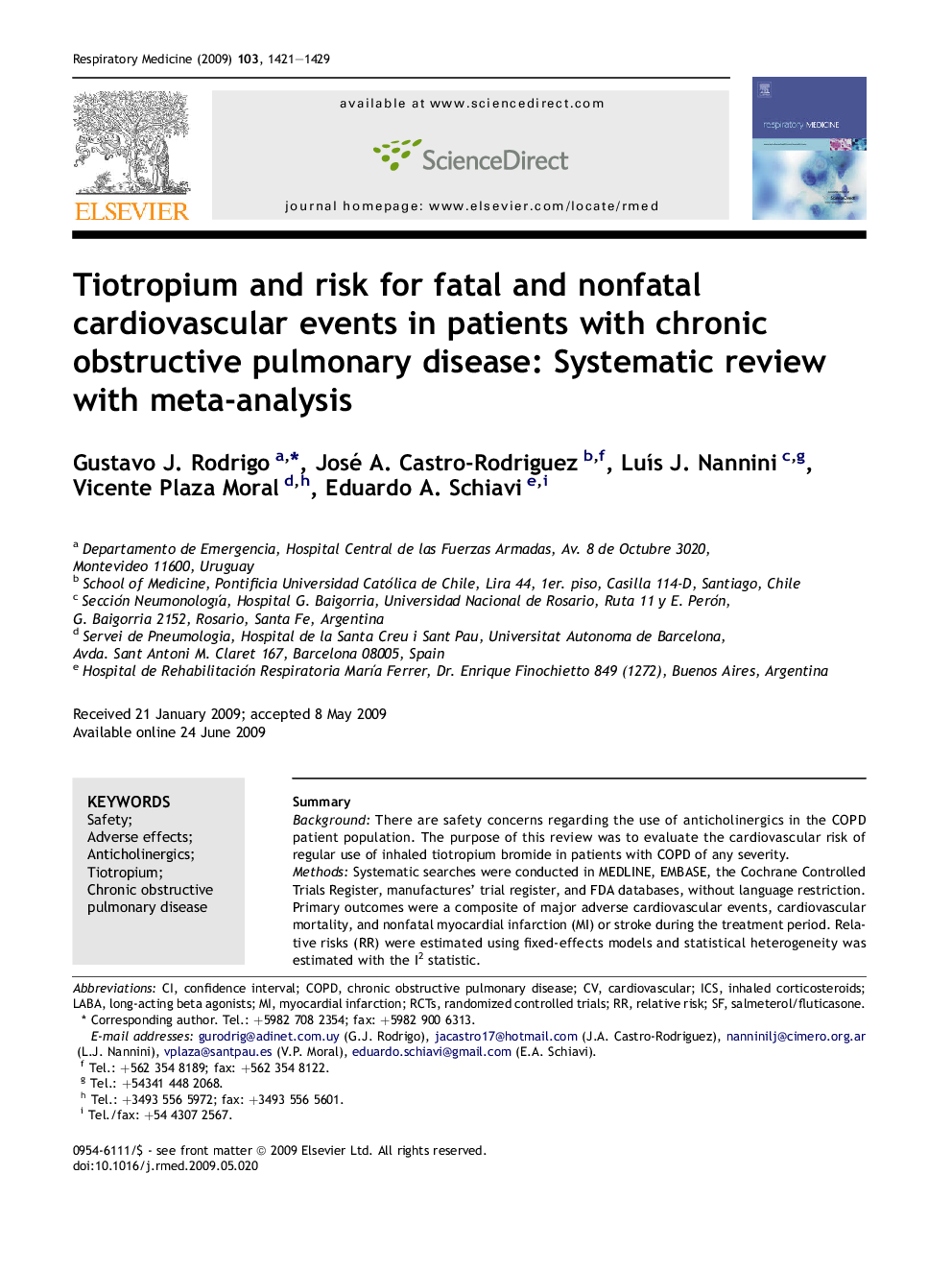| Article ID | Journal | Published Year | Pages | File Type |
|---|---|---|---|---|
| 4210761 | Respiratory Medicine | 2009 | 9 Pages |
SummaryBackgroundThere are safety concerns regarding the use of anticholinergics in the COPD patient population. The purpose of this review was to evaluate the cardiovascular risk of regular use of inhaled tiotropium bromide in patients with COPD of any severity.MethodsSystematic searches were conducted in MEDLINE, EMBASE, the Cochrane Controlled Trials Register, manufactures' trial register, and FDA databases, without language restriction. Primary outcomes were a composite of major adverse cardiovascular events, cardiovascular mortality, and nonfatal myocardial infarction (MI) or stroke during the treatment period. Relative risks (RR) were estimated using fixed-effects models and statistical heterogeneity was estimated with the I2 statistic.ResultsNineteen randomized controlled trials (18,111 participants) were selected. There was no difference in the incidence of adverse cardiovascular events (RR = 0.96; 95% CI, 0.82–1.12, I2 = 6%). Among individual components of the composite outcome, tiotropium did not significantly increase the risk of cardiovascular death (RR = 0.93; 95% CI, 0.73–1.20, I2 = 1%), nonfatal MI (RR = 0.84; 95% CI, 0.64–1.09, I2 = 0%), and nonfatal stroke (RR = 1.04; 95% CI, 0.78–1.39, I2 = 0%). A smoking history of ≥55 pack-years presented a trend to a higher rate of cardiovascular adverse events in patients receiving tiotropium.ConclusionsCompared with control (placebo or salmeterol), tiotropium did not significantly increase the risk of adverse major cardiovascular events among COPD patients. Subgroup analysis suggested that smoking history can modify the risk of cardiovascular adverse events.
